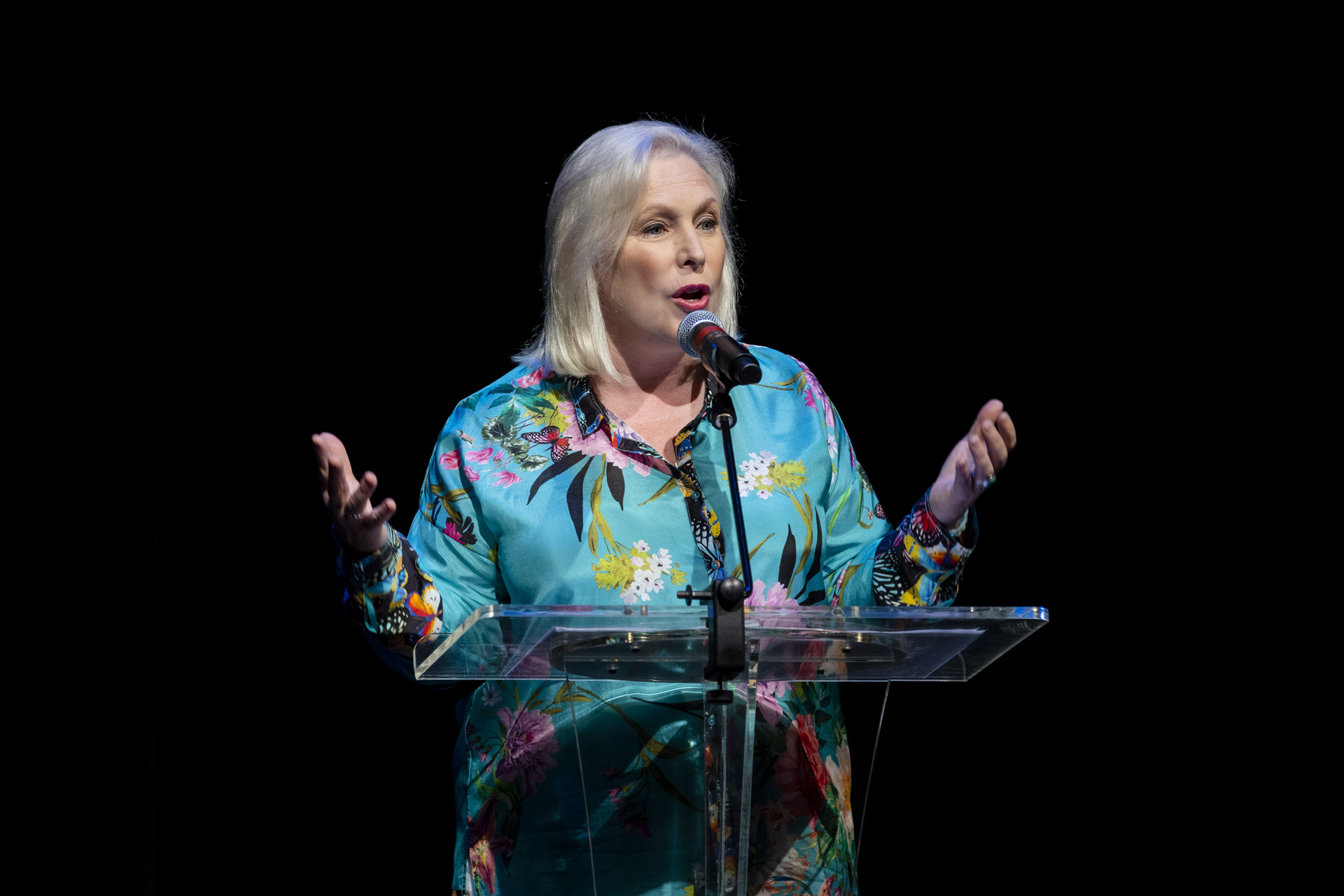Gun violence and insufficient medical attention for mental health were among the concerns on the minds of South Bronxites, at a town hall with State Sen. Kirsten Gillibrand.
The forum took place at Hostos Community College on Aug. 1, offering the public a chance to weigh in on issues facing the community.
“My nephew just got shot and killed a year ago,” by a 17-year-old, said Awilda Cordero, founder and director of a Mott Haven-based social service organization.
Overly easy access to guns is the root of the problem, said Gillibrand, adding that “free college, and better job training is the best solution,” for young people, to deter violent crime. She added that that enforcement of domestic violence laws must be bolstered.
The senator is working with the White House to establish a national program that would pay students’ college tuitioon in exchange for five years of public service.
“We are desperate for the next generation of teachers, the next generation of nurses, the next generation of doctors,” she said, to enthusiastic applause.
Brie Maltz, a social worker with Fountain House Bronx, pointed out that psychiatric hospitalizations in the South Bronx are high and that a lack of supportive affordable housing worsens that problem.
Gillibrand responded with a message of hope: Billions of dollars “with ‘B” billions for mental health” are available in a new gun safety act passed in June.
Most of that money, $13 billion in all, is earmarked for mental health services. A report by the Kaiser Health News refers to the bill as “a gun safety bill wrapped in a mental health bill.” Gillibrand urged representatives in the audience from local organizations to make her office aware of their needs.
Public health in different guises was a key part of other parts of the forum, including spiraling costs of medication, and the emerging monkeypox alert. Responding to a representative of Mott Haven nonprofit Destination Tomorrow, the senator said she would urge the White House to invoke the Defense Production Act to increase domestic production of vaccine, and work with community groups to spread the word about the public health threat.
The exorbitant cost of medication worried Port Morris resident Cesar Yoc, who asked Gillibrand if a bill currently being negotiated on Capitol Hill would pressure pharmaceutical companies to lower drug prices. If passed as it is drawn up, said the senator, the bill’s effect in lowering drug prices will be felt within weeks.
The scarcity of affordable housing was one of the few topics raised that did not directly involve public health. Gillibrand told the audience that although billions of federal dollars are spent annually for housing across the country, no one in Washington ever seems to know where that money has gone.
“Can anybody say where one dollar was spent?” she said. No, we really can’t,” stressing that “the bad decision-making” in housing is then impossible to trace. “It’s a problem every year. It never ends and it makes me so angry because families without housing,”
“It’s too expensive to live in this city,” said Gillibrand, who lives in the Albany area.

